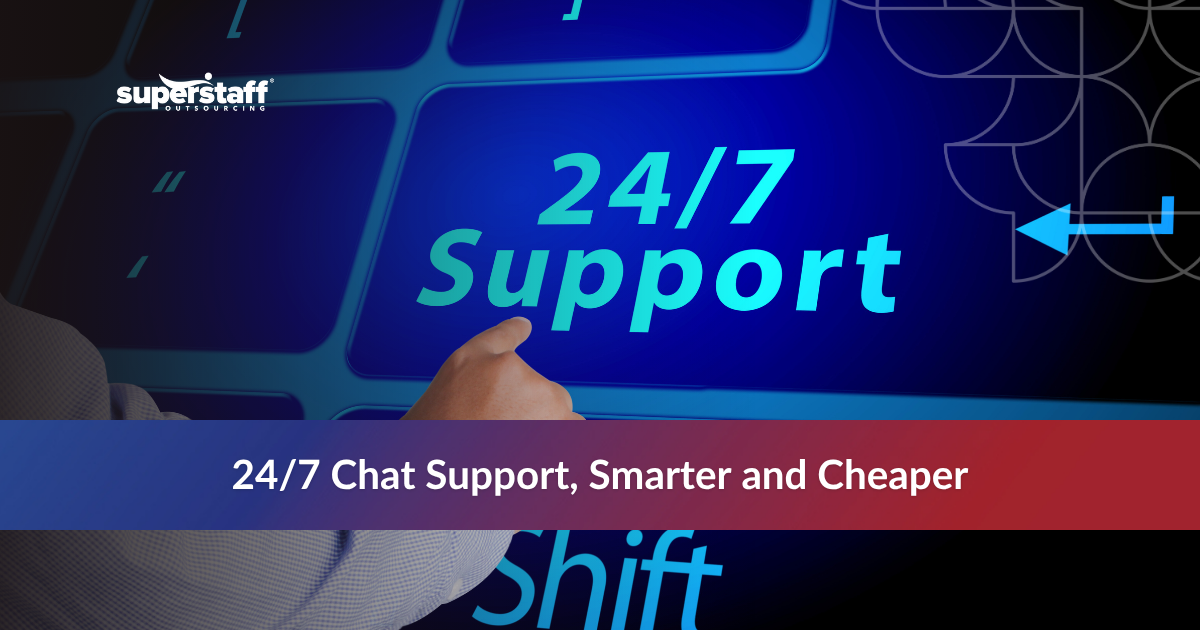
From support tickets to real-time chat, ChatGPT is reshaping how brands deliver customer service. In a world where speed is paramount and customer expectations never sleep, AI tools like ChatGPT promise a revolution in responsiveness. But with that promise comes a crucial question for decision-makers: Are we improving service—or just automating it?
In this blog, we’ll explore whether using ChatGPT for customer service is a strategic advantage or a potential liability. You’ll gain insights to help evaluate if, when, and how to implement ChatGPT responsibly—especially when outsourcing or integrating with human teams.
The Promise of AI: What ChatGPT Brings to Customer Service
The appeal of ChatGPT for customer service is obvious. It’s fast, scalable, and always available. For brands handling hundreds—or thousands—of customer queries each day, that kind of 24/7 support is no small feat. The ability to reduce response times while lowering headcount sounds like the holy grail for operational efficiency.

ChatGPT can instantly process massive volumes of customer inquiries, offering consistent answers with no coffee breaks or time zone restrictions. Businesses using ChatGPT for customer service often find that basic support questions—like account lookups, shipping updates, or password resets—can be handled without human intervention. This not only lowers ticket queues but also gives live agents more time to focus on complex or sensitive cases.
In terms of cost savings, the benefits are just as attractive. Many leaders using ChatGPT for customer service discover they can reduce operating expenses tied to repetitive interactions, which are often the most time-consuming and least fulfilling for human agents. The AI model, when trained properly, enables self-service at scale—an expectation that today’s customers increasingly demand.
The bottom line: ChatGPT delivers speed, consistency, and efficiency. But those gains only matter if accuracy and experience aren’t compromised along the way.
The Risks Beneath the Surface: Where ChatGPT Falls Short
Despite its speed and versatility, ChatGPT for customer service has real limitations that CX leaders must consider. AI doesn’t experience frustration or fatigue—but it also doesn’t feel empathy, recognize nuanced emotion, or fully grasp cultural context. That can be dangerous in high-stakes interactions where tone and timing are everything.
Unlike trained human agents, customer service AI agents are prone to hallucinating answers when they encounter unfamiliar questions or unclear intent. This isn’t a bug—it’s a fundamental limitation of how the model processes probabilities rather than truth. In industries like finance, healthcare, or legal services, even one wrong response can result in reputational or regulatory fallout.
Data privacy is another critical area of concern. Businesses must carefully vet how customer data is handled within AI models. Without rigorous safeguards, the use of ChatGPT for customer service could expose companies to compliance risks under laws like GDPR or HIPAA. In addition, generative models may not always retain context across long customer threads, resulting in broken conversations or repeated questions—issues that frustrate users rather than solve problems.
In short, when companies rush to implement ChatGPT for customer service without strategic oversight, they may unintentionally degrade the experience they hoped to enhance.
Human + AI: Why a Hybrid Support Model Works Best
As decision-makers explore the full potential of ChatGPT for customer service, many are realizing that the smartest approach is not to replace humans—but to empower them. A hybrid model combines the efficiency of AI virtual agents with the intuition and empathy of human support teams.
In this setup, ChatGPT handles the front line. It greets customers, answers basic questions, and escalates more complex or emotional concerns to a live agent. The transition is seamless when the system is designed correctly. No one likes repeating themselves—so systems should include real-time summaries or sentiment tracking, which allow agents to jump in with full context.
This hybrid approach allows companies to scale support without sacrificing quality. The AI virtual agent works tirelessly in the background while human representatives manage what machines can’t: emotional nuance, exception handling, and relationship-building. For the agents themselves, ChatGPT can offer live coaching, suggest responses, or summarize long threads—turning every rep into a more productive contributor.
By using ChatGPT for customer service in partnership with humans, businesses don’t just automate tasks—they optimize experiences.
Outsourcing With AI: What Clients Need to Know
For companies that already outsource—or are planning to—this new era of ChatGPT-assisted service introduces a new kind of opportunity. Today’s leading BPOs are not just offering traditional call center agents. They’re offering human-AI hybrids built for speed, scale, and sophistication.
Outsourcing providers using ChatGPT for customer service train their teams to supervise AI responses, ensuring tone, clarity, and accuracy before replies go out. This “human-in-the-loop” model provides a safety net while retaining the speed advantages of automation.
More importantly, top outsourcing firms integrate customer service AI agents under clear SLAs. That means businesses don’t just get automation—they get accountability. Clients can expect quality assurance, response monitoring, fallback procedures, and regular updates on performance metrics.
Additionally, a good BPO knows that personalization and cultural nuance can’t be automated. When using ChatGPT for customer service, great vendors customize the AI’s tone and training data to reflect a brand’s values. That’s especially important when supporting global markets with diverse customer bases.
By outsourcing to a provider experienced in AI implementation, businesses can skip the trial-and-error stage—and move straight to scalable, secure, and customer-centered support.
Choosing the Right Partner for ChatGPT-Augmented Support
Not every outsourcing partner is equipped to handle ChatGPT for customer service responsibly. CX leaders must ask the right questions before entrusting a BPO with their AI-driven support operations.
First, does the provider have clear AI governance protocols? Responsible use of ChatGPT includes guardrails, transparency, and fallback strategies in case the AI fails to understand or respond appropriately. Look for partners that pair AI fluency with compliance awareness.
Second, evaluate their approach to quality control. The best providers don’t just deploy customer service AI agents—they actively monitor performance. Ask how they manage response accuracy, escalate risks, and maintain data security. Compliance with global standards like GDPR, HIPAA, or PCI-DSS should be table stakes.
Third, look into their integration expertise. Are they capable of merging ChatGPT into your existing CRM or helpdesk system? Do they provide reporting dashboards that show AI performance metrics in real time?
When companies choose partners with both tech fluency and customer empathy, ChatGPT for customer service becomes more than just a shortcut—it becomes a sustainable CX asset.
ChatGPT for Customer Service: Conclusion and Considerations
Used wisely, ChatGPT for customer service can offer a genuine competitive advantage. But used without strategy or supervision, it quickly becomes a risky shortcut. As with most transformative technologies, success lies not in the tool—but in how you use it.
While AI can cut costs, speed up resolution times, and increase capacity, human support remains irreplaceable in situations that require empathy, judgment, or context. A hybrid approach combining ChatGPT and human agents is proving to be the most effective model for companies seeking both efficiency and quality.
At SuperStaff, we specialize in exactly this kind of balanced solution. We help midmarket companies and growing SMEs harness the power of AI while grounding it in expert human support. Our customer service teams in the Philippines are trained to work with and supervise ChatGPT, ensuring your brand’s voice stays clear, consistent, and customer-first.
Ready to build a future-ready CX team? Talk to us today!






